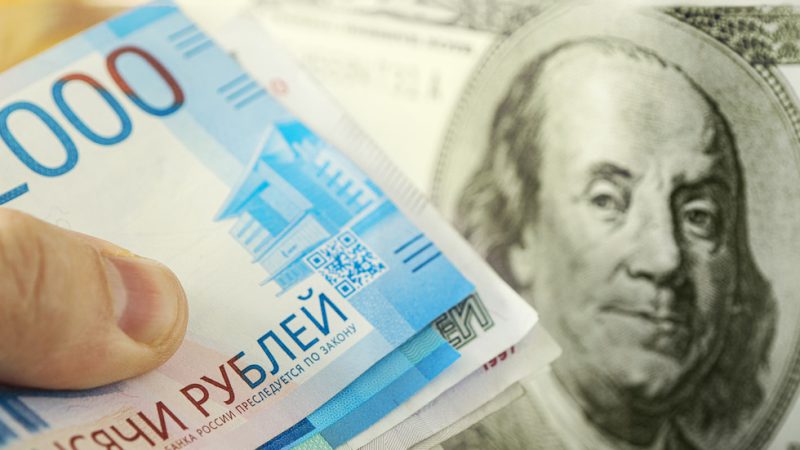
The Russian ruble has been on a roll, strengthening for seven consecutive months against the US dollar. This impressive run, which began in December 2024, has had a significant impact on the Russian economy, particularly on the demand for foreign currency among businesses. According to a recent report from the Bank of Russia, corporate purchases of foreign currency in June plummeted to their lowest level in nearly a year. This sharp decline, reaching a mere 1.6 trillion rubles ($20.5 billion), represents roughly half the average monthly volume seen throughout 2024 and marks the lowest point since July of that year.
The central bank attributes this dramatic shift to the ruble’s strengthening. The sustained rally is largely credited to the Bank of Russia’s tight monetary policy, specifically its elevated key interest rate. This higher interest rate makes Russian assets more attractive to both businesses and individuals, thus bolstering the ruble’s value. Furthermore, the central bank notes a decrease in currency market volatility, despite the ongoing geopolitical tensions.
It’s not just corporate demand that’s fallen. Household demand for foreign currency has also slowed considerably. June saw a 32% drop in net purchases by individuals, totaling 77.9 billion rubles ($1 billion) – a significant decrease compared to May’s 111.0 billion rubles. The central bank attributes this retail decline to seasonal factors, referencing similar drops in previous years.
Since the start of 2025, individuals have made net foreign currency purchases totaling 464 billion rubles ($5.95 billion) – roughly half the amount recorded during the same period in 2024. This overall trend highlights a clear shift in preference towards the ruble, suggesting growing confidence in the Russian currency and the stability of the domestic economy.
The ongoing strengthening of the ruble, coupled with the decrease in demand for foreign currencies, paints a picture of a Russian economy increasingly confident in its own currency. The Bank of Russia’s tight monetary policy appears to be playing a key role in this development, and the future will likely reveal the long-term implications of this significant economic shift.










